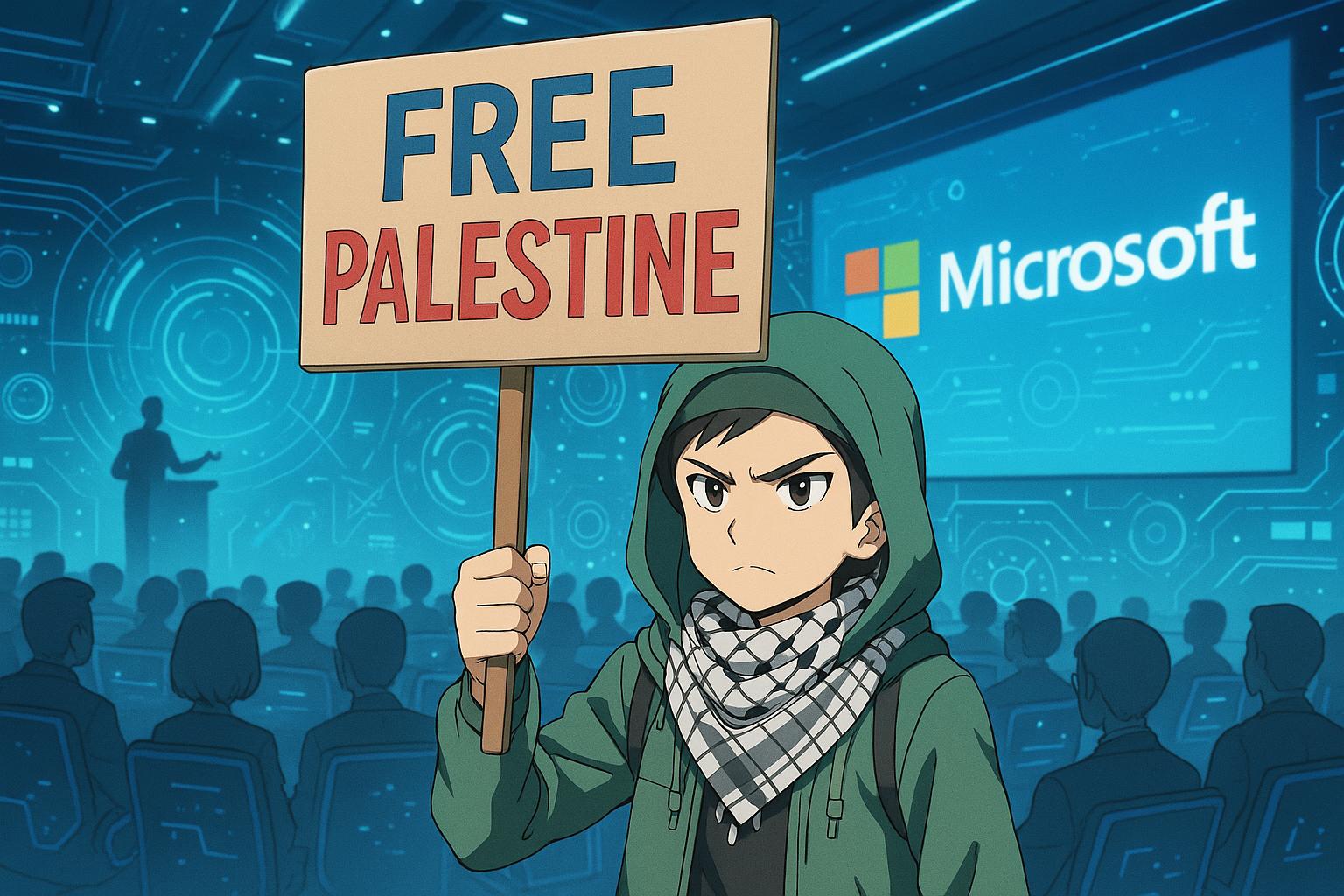The recent Microsoft Build 2025 conference in Seattle became more than just a platform for innovation when a protest erupted, throwing the spotlight on the ethical dilemmas facing the tech giant. As CEO Satya Nadella demonstrated the latest advancements, the voice of Joe Lopez, a Microsoft engineer, pierced the air with a powerful, urgent call for justice: “Free Palestine.” This unexpected disruption highlighted rising tensions within the company regarding its involvement in military operations, particularly in Gaza.
Lopez’s protest is emblematic of a broader trend of tech worker activism, which has gained momentum in recent months. Among the major movements is ‘No Azure for Apartheid,’ a campaign that demands transparency and ethical accountability from companies like Microsoft regarding their cloud services. Activists argue that such technologies, particularly through Azure, serve as “digital infrastructure for destruction,” enabling military actions that threaten civilian lives. Microsoft has faced escalating scrutiny in light of allegations that its AI and cloud services have been utilised by the Israeli military amid ongoing conflicts.
Despite these allegations, Microsoft has consistently denied any direct link between its services and civilian harm. The company asserts that its internal reviews found no evidence of its technologies being employed to result in civilian casualties. However, critics remain sceptical, arguing that these internal assessments lack transparency and are insufficiently rigorous. A report from the Associated Press reveals that Microsoft has confirmed providing advanced AI and cloud services to the Israeli military, though it insists these services support operational efforts unrelated to civilian targeting.
The ethical implications of cloud computing and AI partnerships have sparked debates within the industry, raising questions about the responsibilities tech companies bear in global conflicts. This incident at Build 2025 is not an isolated occurrence; it follows a series of protests that have included prominent figures within the company, reflecting a growing discontent with the perceived complicity of major tech firms in military operations. For instance, other Microsoft employees have staged protests, donning shirts emblazoned with the question, “Does our code kill children?” echoing a sentiment of moral obligation.
Furthermore, the financial dimension of Microsoft’s dealings cannot be overlooked. The Azure Government Cloud supports several significant military contracts, including those with U.S. defence and intelligence agencies. These arrangements complicate Microsoft’s narrative as a neutral service provider and demonstrate how intertwined corporate interests can be with military actions. The company’s partnership with global governments raises questions about the ethical ramifications of such collaborations—particularly when military and civilian needs collide.
In the wake of this protest, the incident has catalysed further discussions among employees about their roles in shaping company ethics. Over 1,000 Microsoft employees previously petitioned leadership, demanding a review of the potential ethical impacts of government and military contracts. The challenges posed by such activism are not unique to Microsoft; similar movements have orchestrated protests and walkouts at companies like Google and Amazon, indicating an industry-wide reckoning with the ethical implications of tech’s involvement in warfare.
As the tech landscape evolves, the protests at Microsoft are a clear signal that technology’s role in society is an urgent discussion, one that cannot be reduced to mere contracts or codes. Employees are increasingly vocalising their concerns, driving home the message that technology is never neutral and highlighting the imperative for ethics in tech applications. The future of Microsoft—and indeed other tech giants—lies not only in advancing capabilities but in recognising the societal impacts of their innovations and responding to the calls for accountability that resonate within their workforce.
Given this heightened awareness, the implications of these protests extend well beyond the conference stage. They beckon a new era of corporate responsibility, where tech workers and consumers alike demand greater transparency regarding how technology is wielded in contexts that can have devastating consequences. In this complicated interplay of innovation, ethics, and social responsibility, the stakes have never been higher—for companies, employees, and the global community they serve.
Reference Map
- Paragraph 1: [1]
- Paragraph 2: [1], [2]
- Paragraph 3: [1], [2]
- Paragraph 4: [1], [2], [3]
- Paragraph 5: [1], [2], [4], [5]
- Paragraph 6: [3], [4], [6]
- Paragraph 7: [1], [6]
- Paragraph 8: [1], [2], [3], [6]
- Paragraph 9: [1], [3], [6]
- Paragraph 10: [1], [2], [4], [5]
Source: Noah Wire Services
